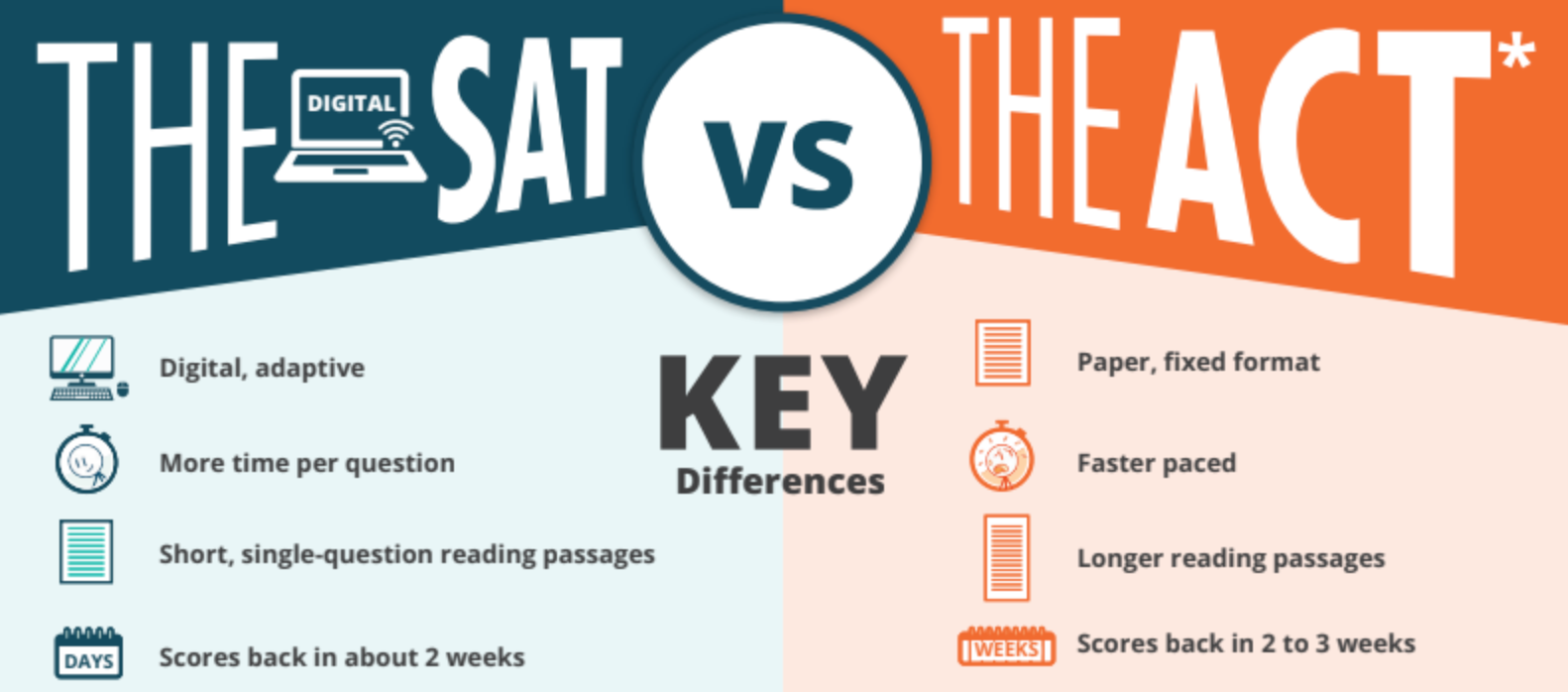This page is licensed under Creative Commons under Attribution 4.0 International. Anyone can share content from this page, with attribution and link to College MatchPoint requested.
SAT vs. ACT: Which Test is Right for Your Teen?
Choosing between the SAT and the ACT can be challenging, but understanding their differences can help you make an informed decision. Consider your teen's strengths, weaknesses, and preferences in test structure, timing, math content, and reading and writing focus. By aligning their skills with the test that best suits them, you can enhance their performance and reduce the stress associated with standardized testing. As always, taking practice tests for both exams can provide valuable insights and guide your final decision.

Deciding between the SAT and the ACT is a common dilemma for many high school students and their parents. Both tests are widely accepted by colleges, but they have differences that might make one a better fit for your teen than the other. Understanding these differences can help you make an informed decision and develop an effective test preparation strategy. Here are four key insights to help you choose the right test for your teen.
Test Structure and Content
The SAT and the ACT differ in structure and content, which can influence your teen's performance. The SAT is divided into two main sections: Evidence-Based Reading and Writing (EBRW) and Math, with an optional Essay. The ACT includes four sections: English, Math, Reading, and Science, with an optional Writing test. The SAT focuses more on reasoning and problem-solving skills, while the ACT is more straightforward and covers a broader range of topics. For instance, the ACT includes a Science section, which tests critical thinking and data analysis skills, not just scientific knowledge. If your teen excels in science and prefers direct questions, the ACT might be a better fit.
Timing and Pacing
Timing is another critical factor that differentiates the SAT and the ACT. The SAT gives students more time per question, which can benefit those who need a bit longer to process information. In contrast, the ACT is known for its fast pace, requiring quick thinking and efficient time management. For example, the SAT allows 75 seconds per question in the Reading section, while the ACT allows only 53 seconds per question. If your teen works well under time constraints and can maintain accuracy at a fast pace, they might perform better on the ACT. Conversely, if they need more time to think through their answers, the SAT might be the better choice.
Math Content and Emphasis
Math content is another area where the SAT and ACT differ. The SAT places a heavier emphasis on algebra and includes a section where calculators are not allowed. It also has a few grid-in questions that require students to produce their own answers rather than choosing from multiple-choice options. On the other hand, the ACT covers a wider range of math topics, including more geometry and trigonometry, and allows calculator use for all math questions. If your teen is stronger in algebra and prefers working without a calculator for some questions, the SAT might suit them better. If they have a solid understanding of geometry and trigonometry and rely on a calculator, the ACT could be the way to go.
Reading and Writing Focus
The reading and writing sections of the SAT and ACT also have distinct differences. The SAT's reading passages are often more complex and require deeper analysis, while the ACT's reading section includes passages that are more straightforward but demand quicker reading and comprehension. The SAT includes a Writing and Language section that tests grammar and usage in the context of passages, whereas the ACT's English section focuses on grammar, punctuation, and sentence structure more directly. If your teen enjoys in-depth reading and analysis, they might prefer the SAT. If they are more comfortable with direct questions and faster-paced reading, the ACT might be a better match.


